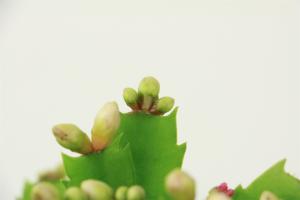Introduction: Why Choosing the Right Wire for Potting Plants is Important
When it comes to potting plants, the type of wire you use can have a significant impact on the success of your gardening efforts. From providing support to climbing plants, to helping your potted plants stay upright in windy weather, the wire you choose can make or break your plant's overall health and growth. In this article, we'll explore the different types of wire available for potting plants and help you decide which one is best suited for your needs.
Types of Wire for Potting Plants
There are a variety of different types of wire available for potting plants. Here are some of the most common:
1. Galvanized Steel Wire
This type of wire is highly durable and resistant to rust, which makes it a popular choice for supporting climbing plants like tomatoes, cucumbers, and beans. The wire can be easily bent to fit the shape of your trellis or support structure, and its sturdy nature means you won't have to worry about it buckling under the weight of your plants.
2. Copper Wire
Copper wire is an excellent choice for potted plants that require gentle support, such as herbs or small flowers. The wire is highly malleable, making it easy to shape around fragile stems or new growth. Copper is also resistant to rust, which means it can be used both indoors and outdoors without worrying about corrosion.
3. Aluminum Wire
Aluminum wire is a lightweight and flexible option that is ideal for smaller potted plants. It is easy to shape and mold to fit the contours of your plant, and is less likely to damage delicate leaves or branches. However, because aluminum is not as strong as other types of wire, it may not provide enough support for larger, heavier plants.
Factors to Consider When Choosing the Right Wire
When deciding which type of wire to use for your potted plants, there are several factors to consider:
1. Plant Size and Weight
The size and weight of your plant will play a large role in determining which type of wire is best suited for your needs. Make sure to choose a wire that is strong enough to support the weight of your plant, while also providing enough flexibility for growth and movement.
2. Durability
Depending on where you live and the overall climate in your area, you may need to choose a wire that is highly resistant to rust, corrosion, or other types of weather-related damage. This will ensure that your wire stays in good condition over time, and can be used for multiple growing seasons.
3. Flexibility
The wire you choose should also be flexible enough to allow for easy shaping and adjusting as your plant grows. Look for a wire that can be easily bent and molded, without breaking or becoming too stiff.
Conclusion
Choosing the right wire for potting plants can be a challenge, but by considering your plant's size and weight, the durability of the wire, and its overall flexibility, you'll be able to find a product that suits your needs perfectly. Whether your plants require gentle support or heavy-duty trellising, there is a wire out there that will help you get the most out of your gardening efforts.

 how many times do yo...
how many times do yo... how many planted tre...
how many planted tre... how many pine trees ...
how many pine trees ... how many pecan trees...
how many pecan trees... how many plants comp...
how many plants comp... how many plants can ...
how many plants can ... how many plants and ...
how many plants and ... how many pepper plan...
how many pepper plan...






























